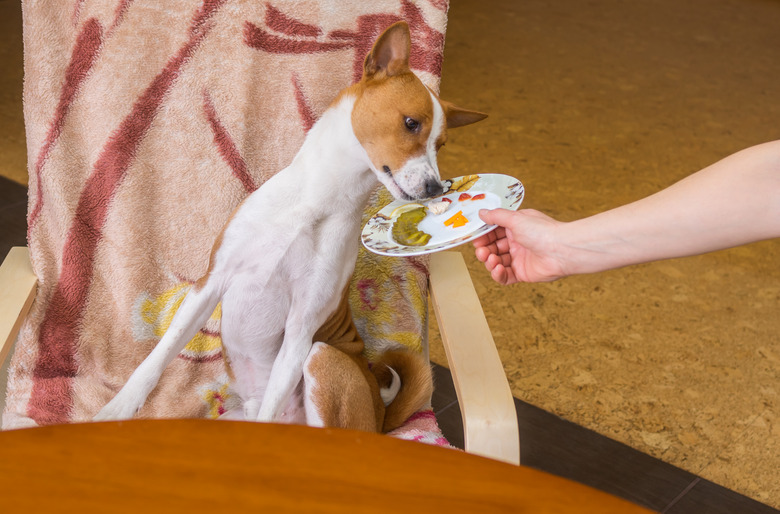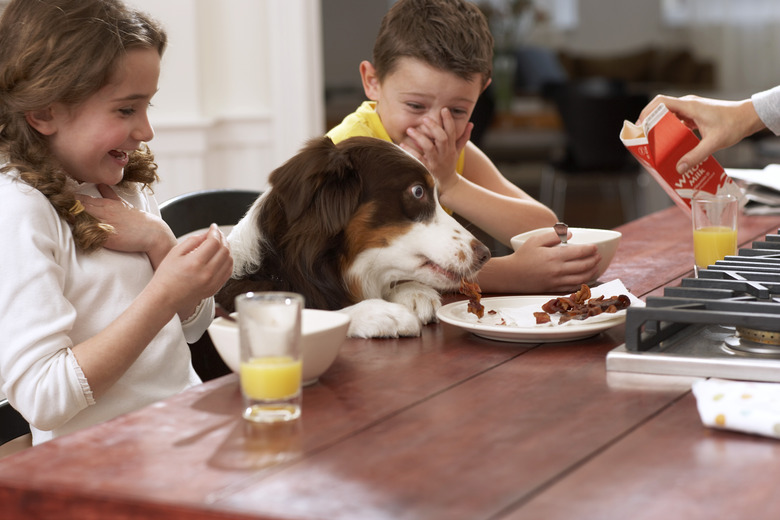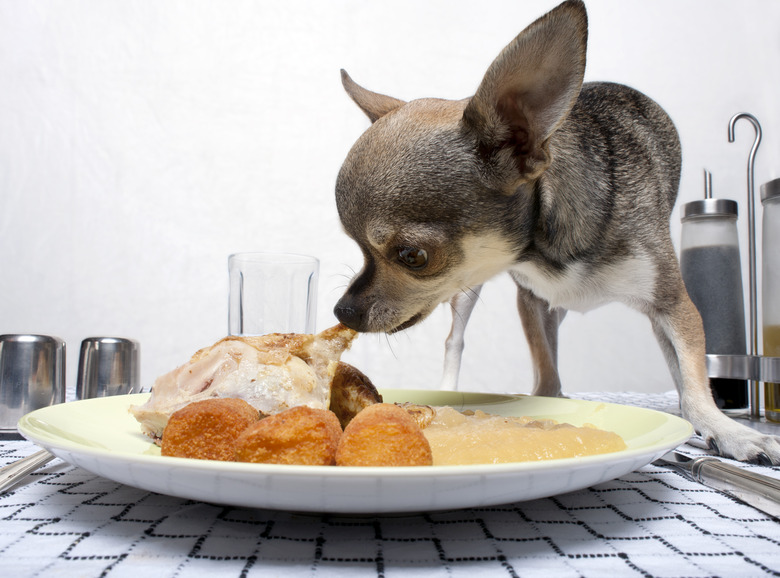What Are The Effects Of Feeding Smoked Meats To Dogs?
Many people think feeding a dog table scraps is a reward for the dog. But the effects of feeding table scraps like smoked meats to dogs aren't worth the risks of your dog consuming too much salt or developing other problems such as pancreatitis. While the dog may enjoy the scraps, not all human food is safe for canine consumption. Some foods, such as smoked meats, have undesirable health risk for pets and should be limited or even eliminated from a pet's diet.
Salt toxicity in dogs
Salt toxicity in dogs
Cured meats such as salami or smoked meats such as sausages by themselves are not considered toxic to dogs — the problem is the sodium content. Cured or smoked meats are generally salted or rubbed with spices or herbs and thus have a high level of sodium. Too much salt can cause your dog to get sodium ion poisoning. According to a 2019 article in Comprehensive Reviews in Food Science and Food Safety, salt provides approximately 90 percent of the sodium in the human diet. In North America, the vast majority of that sodium, almost 77 percent, comes from processed foods.
Humans eat a lot of salty foods, but we shouldn't pass that on to our dogs. Salt toxicity in dogs occurs when the dog consumes too much salt and the equilibrium of salts and minerals in their body is thrown off. The Merck Veterinary Manual says there are increasing reports of adverse effects in dogs from acute excess salt consumption. Salt toxicity in dogs can occur if they consume approximately4 grams per kilogram of body weight. The symptoms of salt toxicity (sodium ion poisoning) in dogs are vomiting, high fever, extreme thirst, diarrhea, tremors, and seizures.
Pancreatitis in dogs
Pancreatitis in dogs
A moderate amount of natural salt is part of a healthy diet for all animals, but but excessive salt and spices can have serious health risks. It is best to avoid feeding high salt foods to dogs altogether, but if you must give your dog smoked meat, rinse it to remove any extra salt and spices. Excess fat from meat can also cause serious health problems for dogs. Smoked meats are generally fatty cuts of meat, and fatty foods can increase a dogs chance of developing pancreatitis.
Dogs with diets that are high in fats are at greater risk of pancreatitis. High fat diets can result from dogs opportunistically raiding the trash can or being fed table scraps. Some symptoms of acute pancreatitis are a tender abdomen, appetite loss, vomiting, and loose, greasy, yellow bowel movements. Before feeding a dog smoked meat, be sure that the meat is a lean cut and that any visible fat has been trimmed away. Lower the risk for your dog by keeping its smoked meat consumption to a minimum.
Obesity in dogs
Obesity in dogs
Feeding dogs smoked meats that are high in sodium and fats can also lead to obesity. Obesity in dogs can be life threatening, with health problems such as diabetes, joint problems, heart disease, high blood pressure and higher risk of cancer. It is best to feed dogs only foods that are specifically made for dogs. Whether it is a homemade blend or a purchased blend, these foods are much safer and healthier for your pet. Human foods are not a dog's best friend.
Healthy dog diets
Healthy dog diets
For the best dog appropriate diet, visit your local vet. Just like humans, dogs are individuals with their own allergies and dietary needs. A food one dog may tolerate, may make another dog violently ill. Stick with treats made specifically for canines to avoid health issues. If you must give smoked meat to your dog, prepare it at home paying close attention to the cut of meat and avoid adding any salt or spices.
Healthy alternatives to feeding smoked meats to dogs are options like boiled plain chicken breast with no bones — it might not seem as exciting to you as a smoked brisket, but your dog will still love it!


